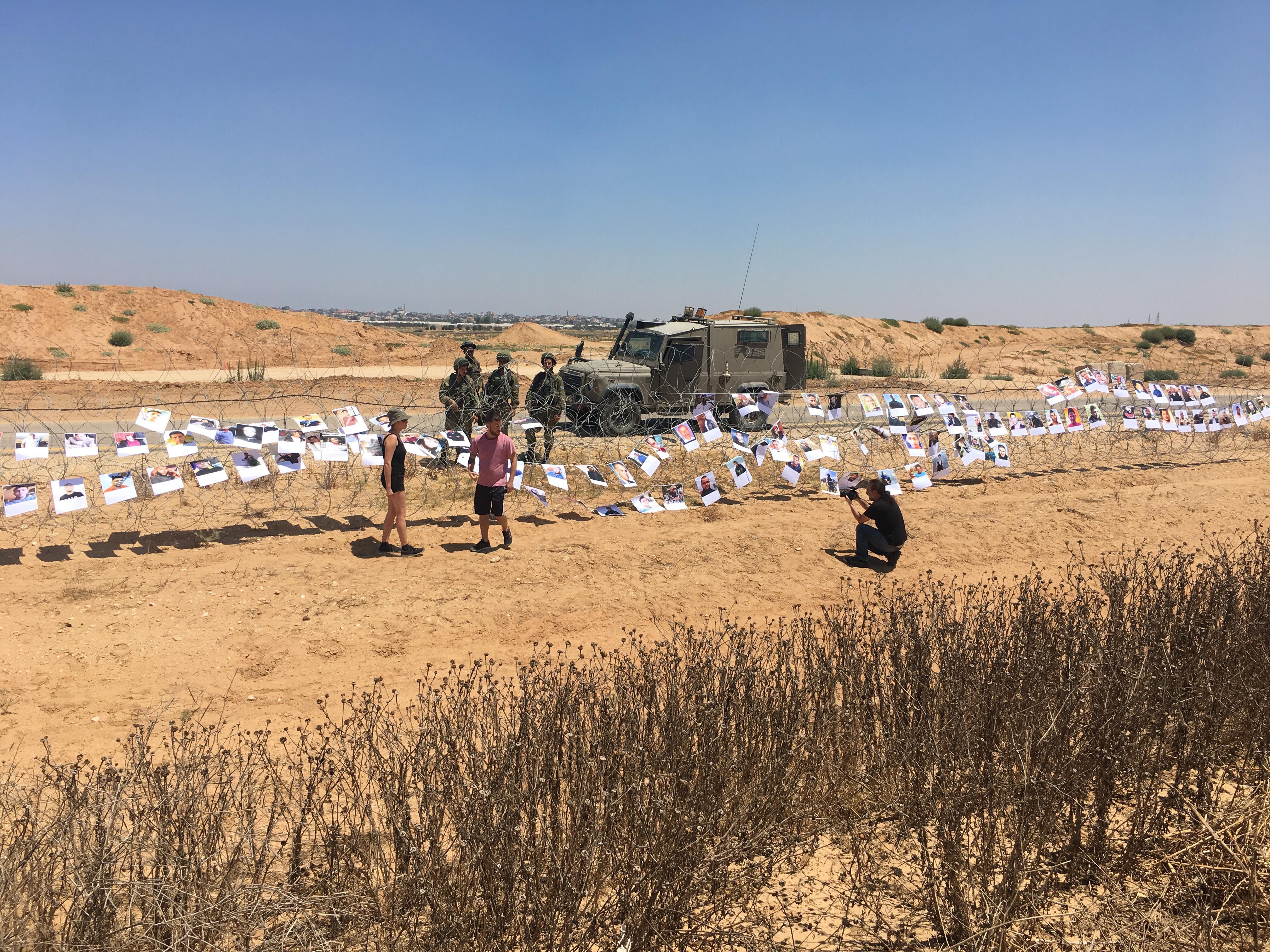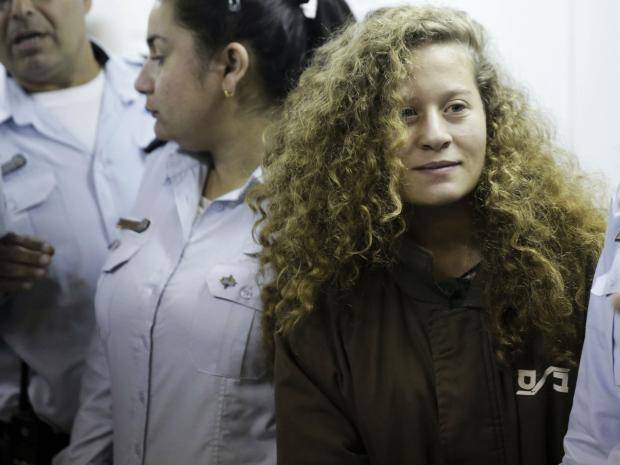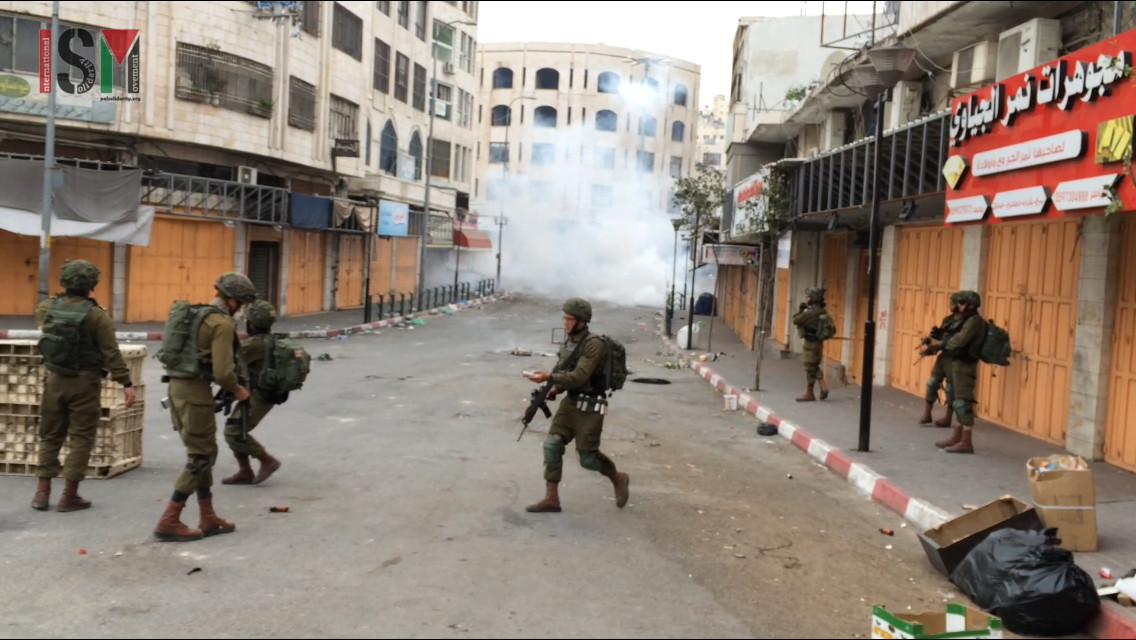Category: Press Releases
-
In Solidarity with the Gaza Protests: Israeli Activists Hung Posters of Slain Palestinian Protesters on the Gaza Fence
Near Khan Yunis, Gaza- 26 June, 2018- A group of Israeli activists, dubbed ‘Return’, advanced today towards the fence besieging the Gaza Strip, and hung pictures on the fence depicting Palestinians slain by the military during the ‘Great March of Return.’ The activists responded to a call for solidarity made by the organizers of the…
-
Press Release Ahed Tamimi stands strong under Israeli interrogation
Press Release: Ahed Tamimi stands strong in interrogation, facing threats and harassment – defying the occupation! Video via Free The Tamimi’s
-
Second day of clashes Palestinian youth protest Gaza killings in Al Khalil
Saturday 31 March 2018, International Solidarity Movement al-Khalil/Hebron, Occupied West Bank, Palestine. Palestinian youth protested the killings in Gaza at Checkpoint 56. The Israeli soldiers fired teargas, stun grenades and live ammunition. Beginning at 8AM Palestinian youth took to the streets of al-Khalil/Hebron to protest the killings and injuries inflicted by the Israeli military on…



